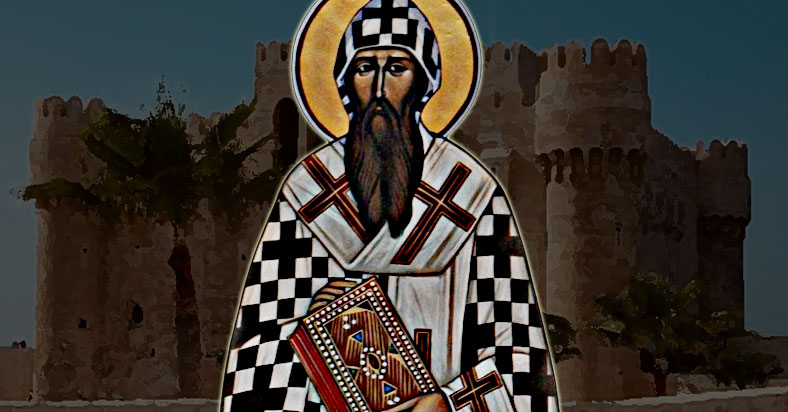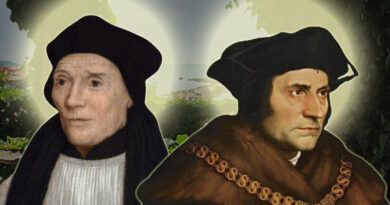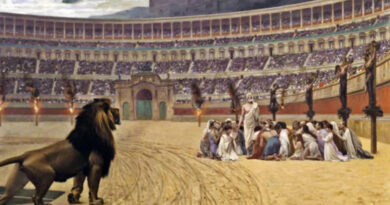St. Cyril of Alexandria: Champion of the Incarnation
•Bishop and Doctor •Feast day: June 27 •370-444
St. Cyril, the esteemed Bishop of Alexandria, holds a pivotal place in the history of the early Christian Church. Born in Egypt in 370 AD, Cyril’s life and works left an indelible mark on Christian theology, particularly through his ardent defense of the divine nature of Jesus Christ and the Blessed Virgin Mary’s title as Theotokos, or God-bearer.
Early Life and Rise to Bishopric
Cyril was born into a devout Christian family in Egypt. His early life was steeped in the faith, which laid the foundation for his deep theological insights and ecclesiastical contributions. Following his ordination, Cyril assisted his uncle, Theophilus, the then Bishop of Alexandria. This period was formative, as Cyril gained valuable experience and knowledge, preparing him for his future leadership role.
In 412 AD, upon Theophilus’s death, Cyril succeeded his uncle as the Bishop of Alexandria. His leadership was immediately characterized by a robust defense of orthodox Christian doctrines, setting the stage for his later confrontations with heretical teachings.
The Nestorian Controversy
The defining conflict of Cyril’s tenure as bishop arose with the advent of Nestorianism. In 428 AD, Nestorius was appointed as the Bishop of Constantinople. Nestorius began to propagate the belief that Christ existed as two distinct persons—one divine and one human—united only by a moral union rather than a singular incarnate entity. This doctrine undermined the concept of the Incarnation and, by extension, the divine maternity of Mary.
Cyril, a staunch advocate for the doctrine of the Incarnation, opposed Nestorius’s teachings vehemently. He argued that Jesus Christ was a single person who was both fully divine and fully human, unified in one nature. This belief upheld that Mary was indeed Theotokos, as she gave birth to Jesus, who is God incarnate.
The Council of Ephesus
The theological dispute reached its zenith at the Council of Ephesus in 431 AD. Cyril, presiding over the council, played a crucial role in the proceedings. Under the authority of Pope St. Celestine I, the council condemned Nestorius’s teachings and affirmed the doctrine of the Incarnation, declaring Mary as the Mother of God.
The council’s decision was a significant victory for orthodox Christianity and solidified Cyril’s reputation as a leading theologian and defender of the faith. Nestorius was excommunicated, and his teachings were denounced as heretical.
Legacy and Writings
Following the Council of Ephesus, St. Cyril dedicated the remainder of his life to theological scholarship and the defense of the faith. He authored numerous apologetical works that articulated and defended the doctrines of the Incarnation and the divine maternity of Mary.
Cyril’s writings, characterized by their intellectual rigor and deep spiritual insight, continued to influence Christian theology long after his death. His contributions were recognized formally when he was declared a Doctor of the Church in 1882, a title that acknowledges his significant impact on Christian doctrine and thought.
Death and Recognition
St. Cyril passed away in 444 AD, leaving behind a legacy of theological brilliance and unwavering dedication to the truth of the Christian faith. His life and works continue to be studied and revered by theologians, scholars, and believers worldwide.
St. Cyril of Alexandria still stands as a towering figure in the history of the Church, a true Doctor of the Incarnation. His defense of the divine nature of Christ and the divine motherhood of Mary not only shaped the theological landscape of his time but also laid the foundation for future generations to understand and celebrate the mystery of the Incarnation.




